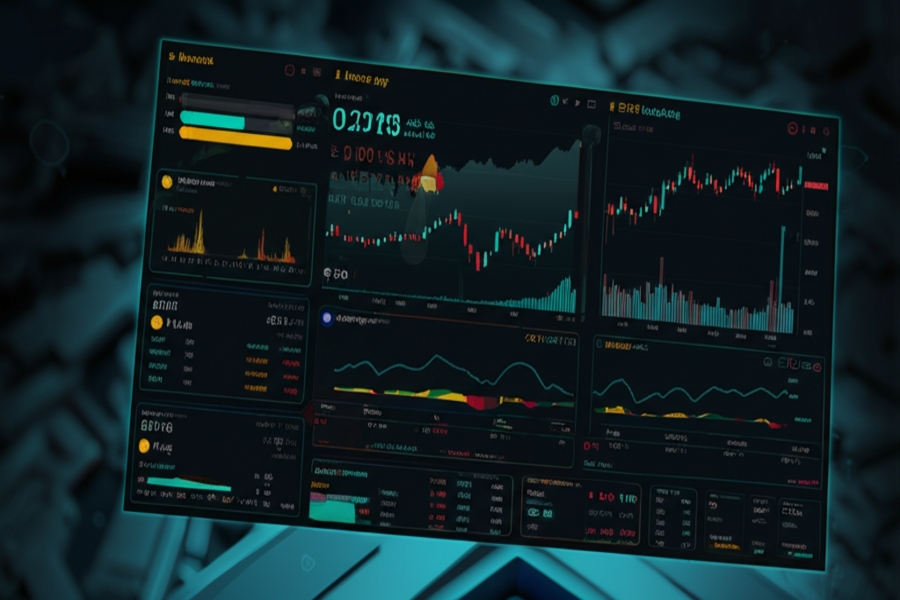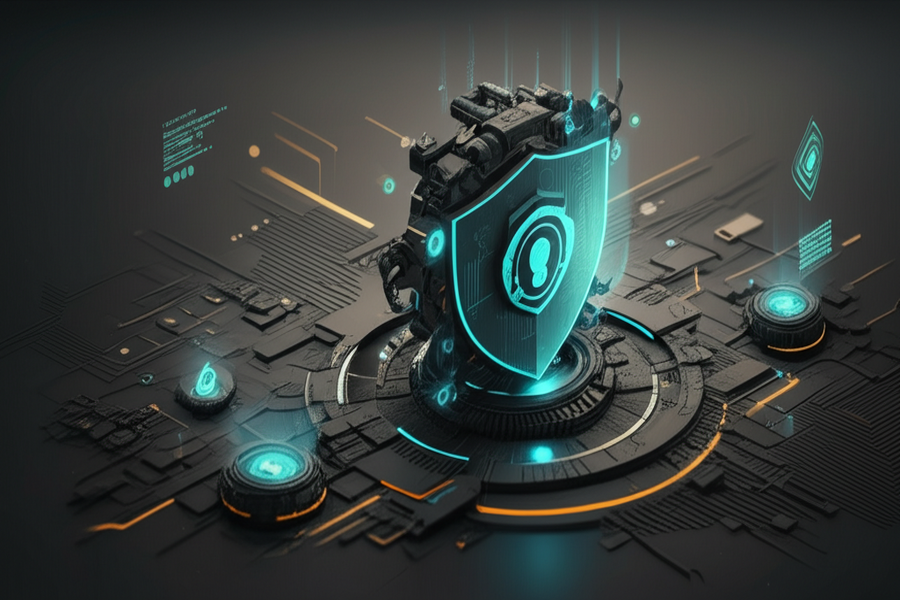Top AI Recruiting Tools to Streamline Your Hiring Process

In today’s fast-paced job market, AI recruiting tools have become essential for streamlining the hiring process. These tools not only automate routine tasks but also enhance the overall efficiency and accuracy of recruitment efforts. In this article, uncover the top AI recruiting tools available and learn how they can revolutionize your approach to hiring, from initial candidate selection to final onboarding.
Understanding AI in Recruitment
Artificial Intelligence (AI) is reshaping numerous industries, and recruitment is no exception. As organizations strive to find the perfect candidates, AI recruiting tools are becoming indispensable allies in the hiring process.
What Are AI Recruiting Tools?
AI recruiting tools encompass a wide array of software designed to streamline various stages of the recruitment process. These tools leverage advanced machine learning algorithms and data analytics to enhance decision-making and efficiency. Here’s what AI recruiting tools can do:
- Resume Screening: Automatically assess resumes for specific qualifications and experiences, saving time and reducing human error.
- Candidate Matching: Utilize predictive analytics to match job profiles with potentially suitable candidates, enhancing the quality of hires.
- Automated Messaging: Facilitate communication with applicants through AI-driven chatbots, ensuring timely responses and engagement.
- Bias Reduction: AI tools can help identify and mitigate unconscious biases in hiring by focusing purely on objective criteria.

For an in-depth look at innovative applications of AI, explore our Best AI Tools for Blockchain Analysis.
How AI is Transforming Hiring Processes
The traditional hiring landscape is undergoing significant transformation courtesy of AI technologies. Recruiters are now equipped with tools that not only expedite processes but also improve the overall quality of recruitment strategies. Here’s how AI is making waves:
-
Efficiency and Speed: AI reduces the time-to-hire by automating repetitive tasks, allowing HR professionals to focus on high-value activities like strategy and candidate engagement.
-
Improved Candidate Experience: By automating communication and providing swift feedback, AI improves the candidate journey, making organizations more attractive to potential hires.
-
Data-Driven Insights: Recruitment now leverages data analytics, enabling companies to refine job descriptions, ideal candidate profiles, and hiring processes.
According to a report by the Society for Human Resource Management (SHRM), companies using AI in recruitment processes see a 30% increase in efficiency and a 25% improvement in hiring quality.
In summary, AI’s integration into recruitment is not just a trend but a crucial evolution towards smarter, more efficient hiring processes. By adopting AI, organizations are not only streamlining their operations but also setting new standards in the hiring ecosystem.
Top AI Recruiting Tools to Consider
As AI technology continues to evolve, its integration into recruitment processes is becoming more profound. Here, we examine the top AI recruiting tools transforming how organizations attract, select, and engage talent.
Tool 1: Leveraging AI for Candidate Sourcing
AI-powered platforms are revolutionizing candidate sourcing, enabling recruiters to identify potential candidates across various platforms effectively. By analyzing patterns and matching credentials with job descriptions, AI tools enhance accuracy and reduce time-to-hire.

Tool 2: Automated Resume Screening
With the capability to swiftly sift through hundreds of resumes, AI tools for automated resume screening ensure that recruiters spend time on the most suitable candidates. This process increases efficiency and reduces human biases. For more insights on beginning your journey into the tech-driven recruitment landscape, consider our beginner’s guide to cryptocurrency trading.
“AI stands out for its ability to handle voluminous data with precision, significantly cutting recruitment cycles.” — An Industry Expert
Tool 3: AI-Driven Candidate Engagement
AI is pivotal in maintaining candidate engagement during the recruitment process. Chatbots and AI-driven communications offer real-time responses to queries, keeping potential hires informed and engaged. According to a study by McKinsey, companies using AI for candidate engagement saw a 45% increase in talent pipeline conversion rates.
Tool 4: Data-Driven Recruitment Decisions
The strategic use of AI for analyzing recruitment data allows organizations to make informed hiring decisions based on trends and predictive analytics. By leveraging data, businesses can forecast hiring needs and optimize their recruitment strategies accordingly.

To stay updated on continuous developments in AI and recruitment technology, follow trusted industry sources like TechCrunch.
Embracing these AI tools not only streamlines the recruitment process but also enhances the candidate experience, fostering a more dynamic and efficient hiring ecosystem.
Benefits of Using AI Recruiting Tools
1. Increased Efficiency in the Hiring Process
AI recruiting tools significantly streamline the hiring process. By leveraging sophisticated algorithms, these tools can sift through hundreds of resumes in seconds, identifying top candidates faster than any human could. According to research by LinkedIn, 67% of hiring managers claim AI has helped them save time in the recruitment process[^1^]. This efficiency allows HR teams to focus more on strategic tasks such as employee development and engagement.
2. Improved Candidate Experience
Job seekers encounter a more refined and personalized experience thanks to AI advancements. Automated systems can manage candidate interactions, providing prompt responses and timely updates. A study found that 78% of candidates say that a positive candidate experience indicates how a company values its people[^2^]. Ensuring a seamless communication channel through AI optimizes not only candidate satisfaction but also enhances an organization’s reputation.
3. Cost-Effectiveness of AI Solutions
Implementing AI in recruitment proves to be cost-effective in the long run. With reduced manual labor for sorting resumes and scheduling interviews, companies can allocate budget resources more effectively. Additionally, reducing the time to hire decreases costs associated with vacant positions, proving AI’s value as an investment. For further insights on integrating AI cost-efficiently, check out our article on best AI tools for blockchain analysis.
AI in recruitment is not just a technological trend; it’s a revolutionary shift that could redefine how businesses find and secure talent. As AI tools continue to evolve, staying informed about their capabilities and potential impacts is crucial for any forward-thinking organization.
[^1^]: LinkedIn Talent Solutions Blog[^2^]: Candidate Experience Research Report
Challenges and Considerations in AI Recruitment
The integration of Artificial Intelligence into recruitment processes heralds a new era of efficiency but is not without its challenges and considerations. Two critical aspects are Addressing Bias in AI Systems and Integrating AI with Existing HR Processes.
Addressing Bias in AI Systems
AI systems, though revolutionary, are not immune to bias—an issue that can perpetuate discrimination if unchecked. A study by MIT found that AI models often lack coherent values, potentially reinforcing existing biases. Addressing biases requires:
- Diverse Datasets: Ensure training datasets reflect a wide range of demographics to prevent skewed outcomes.
- Continuous Monitoring: Implement ongoing evaluations to identify and rectify biases in AI algorithms.
- Inclusivity: Foster an inclusive culture where AI tools are developed by diverse teams to minimize biases.
Integrating AI with Existing HR Processes
Seamlessly integrating AI with existing HR processes can significantly enhance recruiting efficiency but requires careful planning:
- Training: Equip HR teams with the necessary skills to handle AI tools effectively.
- Alignment with HR Goals: Ensure that AI systems complement current HR objectives and practices.
- Feedback Mechanism: Establish a system for human oversight and feedback to correct AI-generated outputs.
For those exploring AI’s impact beyond recruitment, the AI Revolution continues to reshape various sectors, offering lessons for successful integration.
By understanding these challenges and embracing a strategic approach to AI integration, businesses can not only improve recruitment efficiency but also lay the groundwork for a more equitable job market.
For further insights on AI’s influence across sectors, exploring the implications for cryptocurrency can provide additional perspectives. Visit MIT’s AI Insights for more expert opinions.
Conclusion: The Future of AI in Hiring
As artificial intelligence continues its march across the digital landscape, its influence on recruiting processes is already proving to be transformative. The horizon of AI-enhanced recruitment is lined with potential, promising a shift in how businesses attract, retain, and develop talent. Understanding this evolution is critical for companies aiming to stay ahead.
Adapting to AI-Enhanced Recruitment
Organizations that effectively adapt to AI-enhanced recruitment technologies are likely to enjoy competitive advantages. Here are the key components shaping the future of hiring:
-
Data-Driven Decision Making: AI empowers recruiters to make informed decisions by analyzing vast amounts of data, predicting candidate outcomes and job fit.
-
Efficiency in Screening: Automated tools are enabling faster and less biased candidate screening processes, reducing time-to-hire and improving workforce diversity.
-
Enhanced Candidate Experience: Chatbots and AI-driven communication channels offer personalized candidate interactions, significantly enhancing the recruitment experience.
-
Predictive Hiring and Retention: By understanding patterns and trends, AI can predict not only which candidates will thrive but also which employees might become disengaged.
- For a deeper dive into AI’s role in blockchain analysis, explore our detailed article on best AI tools for blockchain analysis.
A recent study by PwC indicates that 67% of hiring managers believe AI enhances the recruitment process[^1]. However, with rapid technological changes, businesses must ensure they balance AI automation with the human touch, maintaining empathy and ethical standards amidst digital interactions.
The future of recruitment is undoubtedly AI-driven. To unlock its full potential, businesses must remain agile, embracing innovation while consistently reshaping their strategies to adapt to evolving technological landscapes.
